
On May 10, 1940, Winston Churchill accepted a formidable responsibility. He took over as Prime Minister of Great Britain. The future was grim, the horrible rout of the British on the beaches of Dunkirk was just a few weeks away, and France was failing to resist the Nazi march. We know now that Churchill picked up the mantle of leadership and led the British from the brink of defeat, both militarily and socially, to eventual victory over Nazi Germany.
Churchill did not do this alone. As a leader, he inspired and directed an incredible effort. Churchill's conduct and leadership are rich sources of inspiration for us as managers and leaders. I see Churchill's behavior as something beyond war leadership; his example is applicable to any leadership situation during war or peace.
What do Churchill's leadership skills have to do with our modern supply chain today? The key principles of his leadership are scalable and flexible for application to just about any leadership situation. For example, is it important for a distribution center manager to build a strong and loyal support staff? How important is it to have an even disposition when you're in a leadership position? How successful are leaders who speak with clarity of purpose?
Leadership is something you do; leadership is an activity, a pursuit, not a topic of study. Look at successful leaders in the supply chain and logistics industries today, and you will find leaders who embrace all the key behaviors that Winston Churchill demonstrated in what is clearly one of the most difficult leadership positions ever held by any person.
Highlighted below are 12 key points of Winston Churchill's war leadership between 1940 and 1945, in which he:
- Built a strong organization of capable people.
- Depended on a steadfast and loyal support staff.
- Maintained a consistent routine.
- Kept an even disposition.
- Had no defeat in his heart.
- Listened to a constant feed of information from all sources.
- Had a centered belief in himself and his abilities.
- Was a national leader, not a party leader.
- Always spoke with clarity of purpose.
- Was visible to the public —even taking risks to be visible—establishing his humanity and humility.
- Was active, not passive; always taking decisive, and, if necessary, ruthless action.
- Set and maintained high standards.
Articles in This Series
Articles in This Series
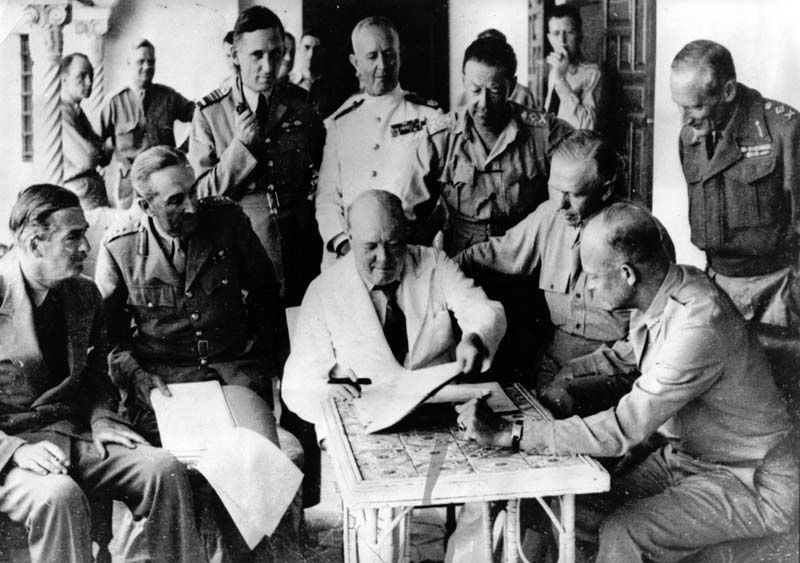
Behavior 1: Build a Strong Organization of Capable People
Churchill clearly understood that he could not do it alone. Having fought in previous wars, having been involved in public service most of his life, and having seen the failures of others, Winston Churchill knew that his job was to influence others. Read More
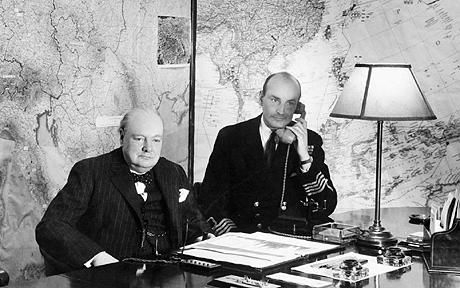
Behavior 2: Depend on a Strong and Loyal Support Staff
On duty with Churchill, almost around the clock, was a strong and loyal support staff. That support staff consisted of personal secretaries and typists who quickly learned their boss’ mannerisms and helped manage details for the most busy executive of the time. Read More
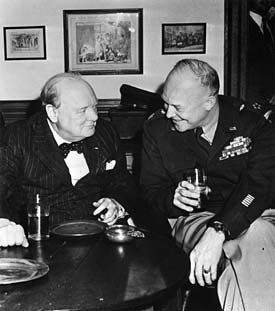
Behavior 3: Churchill Maintained a Structured Routine that Worked Best For Him
Winston Churchill was the most senior executive in England in his time. Yes, there was a king, but top leadership of Britain in World War II was Churchill. The workload of most senior executives is all-consuming, let alone the workload of the leader of a country at war. Read More
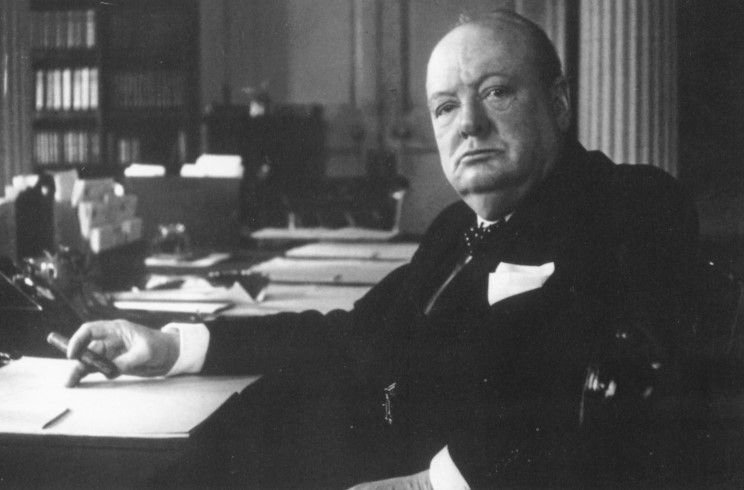
Behavior 4: Churchill Kept an Even Disposition
One of Winston Churchill's goals was to maintain an even disposition—which was a constant challenge. He worked to maintain an upbeat attitude and restrain his temper. While much has been written about Churchill's temper, he clearly understood that operating out of anger could be debilitating. Read More
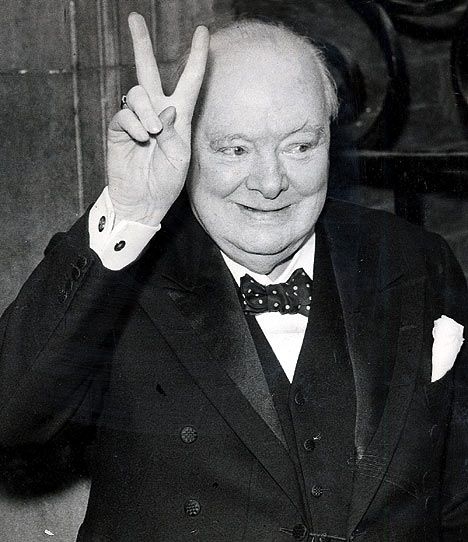
Behavior 5: No Defeat in His Heart
While Winston Churchill may have understood intellectually that defeat is always a possible outcome; emotionally he denied it. Churchill refused to accept defeat, believing with all his heart that eventually Britain, and the free world, would triumph over the horrible mechanization of Nazi Germany. Read More

Behavior 6: Churchill Listened and Read from a Constant Feed of Information from All Source Points
A tree falls in the forest. No one is there. Is there a sound?
Some would answer that while there are waves in the air, unless there is something or someone to feel those waves, to sense the sound, the sound does not exist. Read More
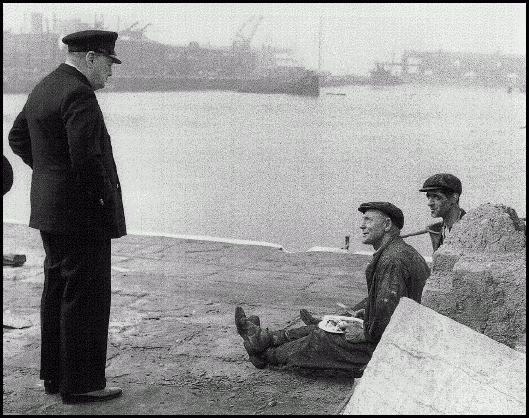
Behavior 7: Churchill Had a Centered Belief in Himself and His Abilities
To some people Winston Churchill was an arrogant man. Those who saw him this way failed to see the whole of his ability, and therefore missed the essence of the man. Churchill was very capable at almost everything he put his hand or mind to. He was both a force of reason and a force of will. Read More
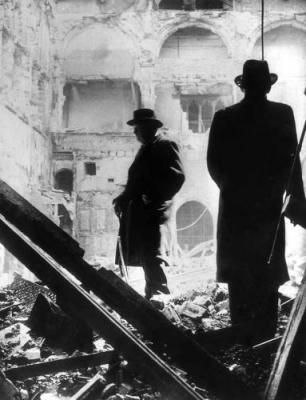
Behavior 10: Publicly Visible, Took Risks to Be Present and Established His Humanity and Humilty
Winston Churchill was 65 years old in May 1940 when he assumed the office of Prime Minister of England. The country was at war. In a few months Britain would be fighting for its survival. It would take a man of presence to become the wartime leader the world needed. Read More

Behavior 8: He was a National Leader, not a Party Leader
May 2010 saw the installation of the first coalition government in the UK since the time of Churchill, this time because the electorate was divided between the two major parties so that neither party had a majority. Read More
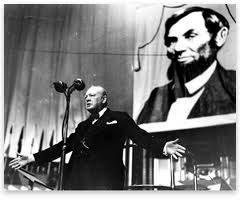
Behavior 9: Churchill Always Spoke With Clarity of Purpose
On May 13, 1940, Winston Churchill spoke to the British House of Commons:
“We have before us an ordeal of the most grievous kind. We have before us many, many long months of struggle and of suffering. You ask, what is our policy? I will say: It is to.... Read More


